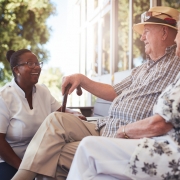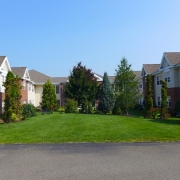How to Find the Best Nursing Homes Near Me
Finding the best nursing home for a loved one is a crucial decision that requires careful consideration, and sometimes, it can be overwhelming to know where to start. Fortunately, there are key factors to consider when searching for nursing homes near you, including the quality of care, facilities, staff qualifications, and patient reviews, to make the search a lot easier.
Why do people move to nursing homes?
There are a number of reasons why people move to nursing homes. If you are curious about them, here is a list of familiar reasons to begin with.
- They are not able to take care of themselves.
- The ones taking care of the elderly will likely feel drained and mentally unwell.
- They need professional care to ensure they have the means to live comfortably.
- Taking care of aging parents is impossible as jobs and other obligations may get in the way.
- The comfortable environment of the home may not be enough compared to nursing homes near me.
Senior living communities are often the answer when adults require additional support with household tasks, medical management, and personal care. Nevertheless, understanding your options is critical in choosing the right one for you or your loved ones. You can determine it is time to explore assisted living if you find the following conditions true.
- Has experienced a fall in the past six months
- Lives with complex medical conditions or chronic pain
- Finds it hard to manage medication
- Feels anxious, depressed, isolated, or lonely
- Difficulty getting nutritional needs, including healthy diet, grocery shopping, or meal preparation
- Needs assistance when doing daily personal care or cleaning the house
Finding the Best “Nursing Home Near Me”
If the conditions mentioned earlier are actual, it is time to consider finding the best nursing home near me. Here are steps to find a nursing home that meets your needs:
- Make sure that it is just within your area.
- If there are more than one, you may compare the quality of services they provide.
- Then, you have to visit the location that you find interesting or have someone do it for you.
- Select the one that best meets your requirements.
If you need more information about the place, you may ask questions from friends, family, or others within the area. You may also ask questions during your visits to address your concerns, if there are any.
The secret to finding the right nursing home to meet your needs is to research without waiting until it’s time to find one. You can use online tools or take advantage of in-person visits to assess these long-term care facilities personally. That said, you can talk to staff or administrators and observe first-hand how the residents are cared for. You may also see how activities are done or how residents get proper attention when needed. Thus, you will be guided properly in finding the best nursing home near your family.
Learn more about Richmont Senior Living by clicking here!
Richmont Senior Living is proud to serve Ashland, NE and the surrounding cities: Memphis, Springfield, South Bend, Greenwood, Murdock, Waverly, Murdock, Ithaca, and Chalco











